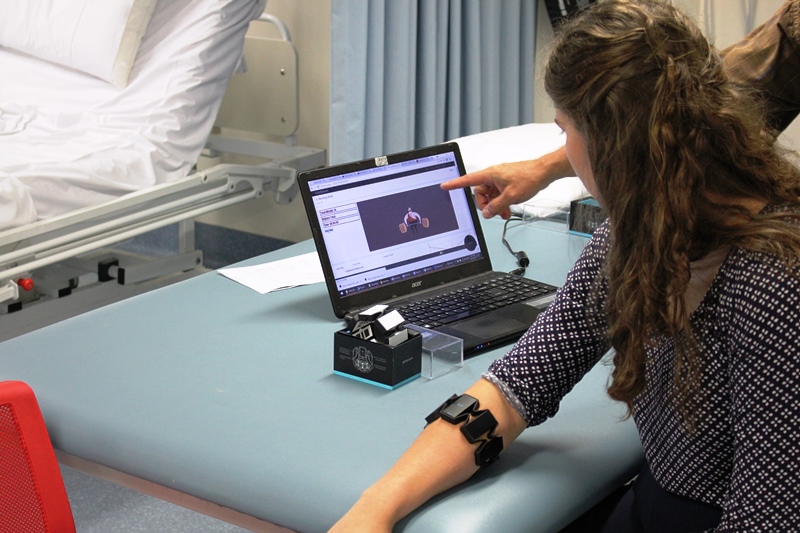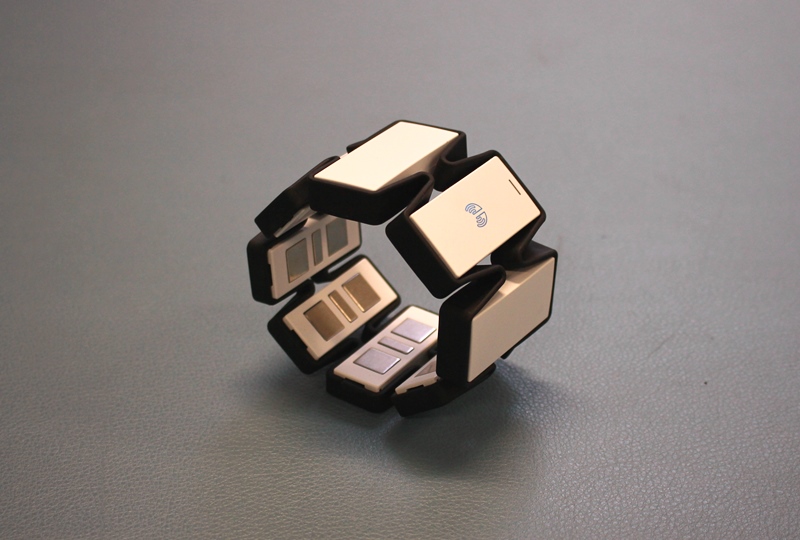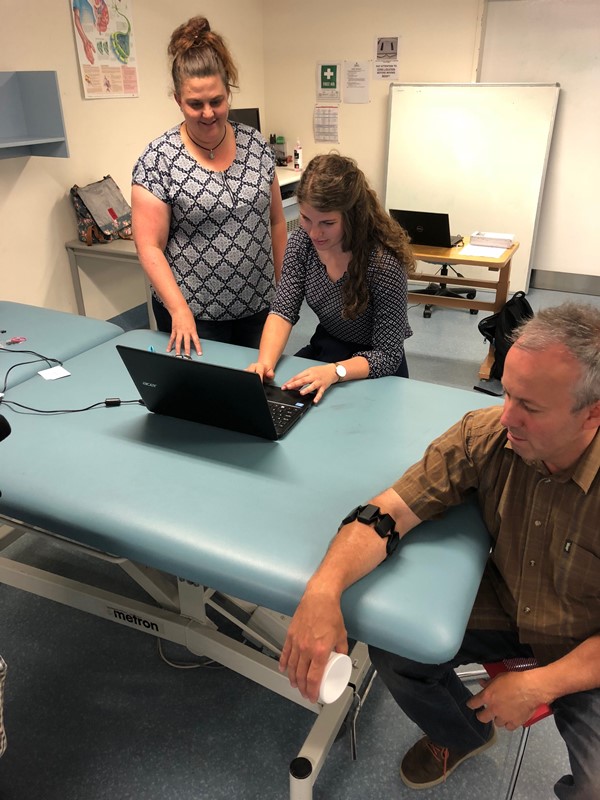Marcus Butler
18 December 2017
A new research project underway at the University of Canberra is using digital wristbands to help stroke survivors regain strength and function in their arms.
It’s estimated more than 475,000 Australians are living with the effects of stroke, which can include a sudden lack of strength, control and stamina in the limbs. This can make it difficult for them to complete daily tasks by themselves.
Bachelor of Physiotherapy Honours student Amy Webb is investigating whether exercises using a digital wristband can help patients regain lost arm strength and reclaim their independence.
“The focus of rehabilitation is often about getting stroke patients back on their feet to help them move around and keep active,” Ms Webb said. “For this reason, there isn’t as much time for rehab work done in the area of regaining arm strength”.
Ms Webb is looking for participants who are recovering from stroke but still have weakness in their arm to take part in the study. Participants will be loaned a digital wristband to wear and asked to complete a series of exercises which are part of a game, each day for four weeks.
“I hope that by playing a game, which is controlled by the wristband for 20 minutes a day, we can set participants on a path to regain their lost arm strength and function,” Ms Webb said.
She said losing arm strength after a stroke can mean the difference between a survivor having their independence or relying on a carer to help them complete daily tasks like cooking or getting dressed.
Assistant Professor of Physiotherapy Elisabeth Preston, who is supervising the project, said rehabilitation should focus on getting a patient as fit as possible, not just focusing on their leg strength.
“Strokes don’t just affect the elderly, with figures showing about 30 per cent of people who have a stroke are under the age of 65. They are still working, playing sport and raising their family,” Dr Preston said.
“We want recovery to be about aiming for a return to full function, not just about getting a person back on their feet,” she added.
People interested in taking part in the study can contact Dr Preston – elisabeth.preston@canberra.edu.au





